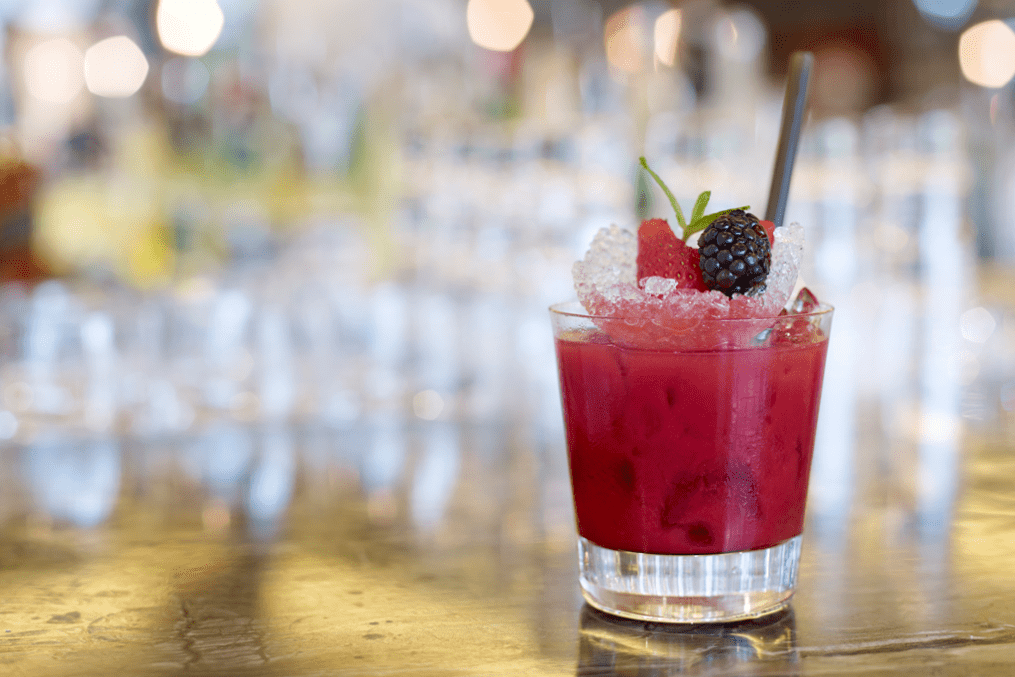6 reasons to try Dry January

Whenever Britain’s drunken escapades hit the news, one image is always wheeled out: a young woman lying passed-out on a Bristol street bench, copious bottles of booze piled beneath her. The country’s drink-fuelled history has been well-documented, with alcohol misuse reportedly costing the NHS more than £4bn every year, but this picture is now over 10 years old and, as recent trends suggest, no longer represents young people’s drinking habits. Instead many 16-24-year-olds (known as ‘generation sensible’) are now choosing to go sober, whether it be for health, social, or financial reasons. And although Dry January can feel like a daunting concept after the onslaught of the festive season, there are many reasons why we could benefit from taking a leaf out of their book and giving a booze-free month a go. Here are six obvious Dry January benefits:
1 You won’t be alone
Worrying about being left out of social plans can often put people off going sober, but the fact is that one in five adults in the UK is now teetotal. Among 16-24-year-olds, the number is even higher at just over one in four. Cutting down is becoming much more fashionable: Alcohol Change UK estimated that 4.2 million people attempted Dry January 2019. And you can still meet friends at the pub if you’re teetotal, just order a soft drink or non-alcoholic ‘mocktail’ instead.
2 Going sober is better for your health
Drinking alcohol is linked to several types of cancer, including breast and mouth cancer, so cutting it out will reduce your risk. Going teetotal will also slash your risk of liver disease, as your liver is the organ which has to work hard to metabolise alcohol. Additionally, quitting drinking will help you sleep better and could help you lose weight, as alcohol is full of sugar and empty calories.
3 It’s good for your mental health, too
Drinking and mental health problems can form a vicious cycle: excessive drinking can exacerbate existing mental health issues, while people who are suffering mental health problems might use alcohol as an unhealthy crutch. Alcohol consumption is also linked to increased anxiety and stress, and can be a contributing factor to depression. 54 per cent of millennials view their mental health as being of utmost importance, so the increase in teetotalism doesn’t seem so surprising.
4 You’re less likely to embarrass yourself
Many of us have been there: you wake up with ‘beer fear’, trying to remember all of the embarrassing things you might have said, or done, the previous night. Social media has played its part in this form of anxiety, too. Anecdotal evidence suggests that a growing number of young adults are now anxious about the effects of alcohol, because their antics might end up on Instagram, while a further study found that young people branded those who are drunk ‘embarrassing’. Avoiding booze is an easy way to stay in control and minimise your chances of ending up in awkward situations.
5 There are plenty of tasty alcohol-free alternatives
The no- and low-alcohol market has traditionally been a pretty dreary one. Lately, though, the choice of products has improved dramatically, as drinks companies recognise there’s money to be made from moderation. Booze-free bars such as Redemption in London are setting the trend for going dry, offering artisan mocktails that are just as tasty as alcoholic alternatives.
6 Ditching the drink will save you money
As well as the obvious health benefits of ditching booze, going alcohol-free can help your bank balance look a little healthier. And even though today’s trendy mocktails are pricier than traditional post-mix soft drinks, they’re still usually half the price of their alcoholic alternatives. Try putting the money you would have spent on alcohol aside for a month and spending it on a self-care treatment, like a massage, or getting your nails done. The incentive at the end of the month will help to keep you on the wagon.
Adapted from an article by Anna Berrill





